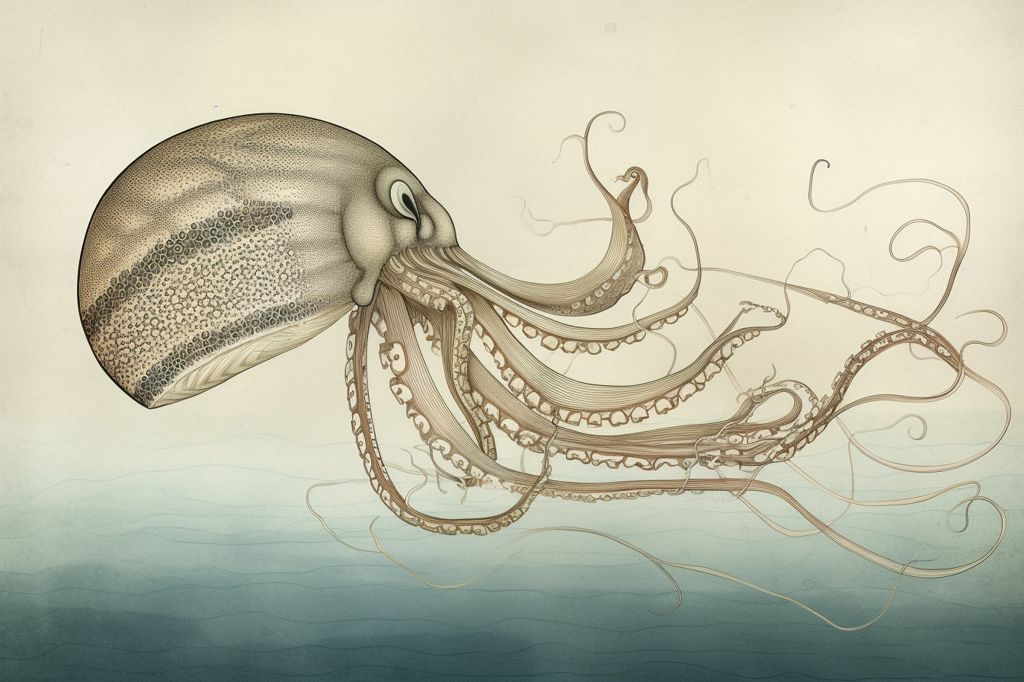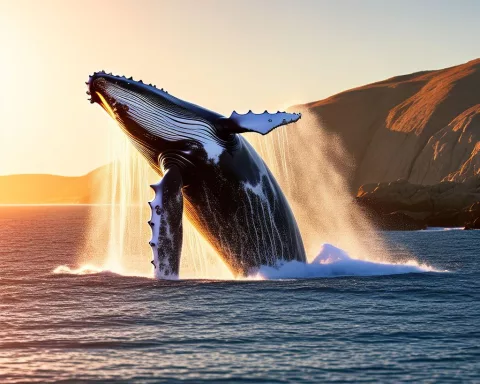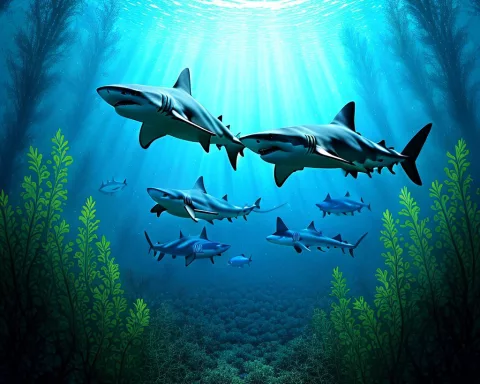Dr. Tess Gridley, the principal scientist and co-founder of Sea Search, an environmental conservation organization, discovered a rare and extraordinary marine creature – a paper nautilus octopus – on a seemingly ordinary day at Muizenberg Beach in South Africa. This discovery highlights the importance of environmental conservation efforts in protecting the rich biodiversity of marine life.
The Paper Nautilus Octopus
The paper nautilus octopus belongs to an ancient pelagic octopus residing in the open ocean. These fascinating creatures are part of the Argonautidae family and can be found worldwide in tropical and subtropical waters.
One of the most captivating aspects of the paper nautilus is the female’s delicate, thin shell that forms a chamber that houses and protects her eggs. Interestingly, the surface is not physically attached to the female’s body; however, she can control its movements through muscular contractions.
Dr. Gridley’s Discovery
Dr. Gridley’s chance encounter with the paper nautilus was unique, as sightings of these enigmatic animals in the wild are uncommon. She shared a video of the octopus and her experience finding it on Muizenberg Beach: “I found this lovely lady on Muizenberg Beach this week while out looking for a dead seal! After the spring tide, there were a lot of interesting washouts: mermaid purses, pufferfish, and this paper nautilus, which is a type of octopus.”
Challenges Faced by Paper Nautiluses
Paper nautiluses face several challenges in the wild. Their fragile shells make them highly susceptible to predation by marine animals, such as sea turtles and large fish. Additionally, these pelagic species are sensitive to changes in oceanic conditions, including water temperature and pollution levels.
The Importance of Marine Conservation Organizations
Dr. Gridley’s discovery is an essential reminder of the beauty and mystery of the world’s oceans and the critical need for the continued support of organizations like Sea Search. Through research, education, and community engagement, these organizations work tirelessly to promote the understanding and protection of marine ecosystems. Their efforts shed light on the vast life beneath the waves, from enigmatic creatures like the paper nautilus to the countless other species forming the intricate web of marine biodiversity.
Dr. Gridley’s discovery of the paper nautilus octopus highlights the wonders of our oceans and the importance of environmental conservation efforts in protecting the rich biodiversity of marine life. The bittersweet tale of the paper nautilus is a powerful reminder of the fragility of our oceans and the critical need for the continued support of marine conservation organizations.












